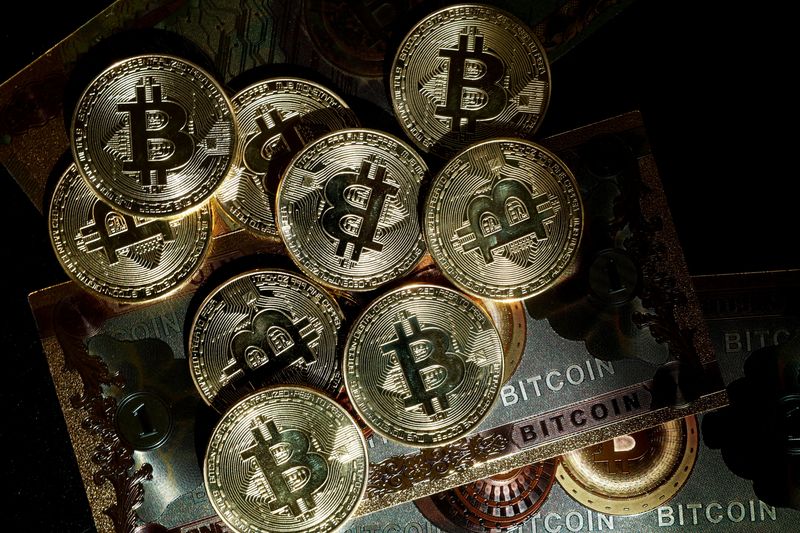By Lisa Pauline Mattackal
(Reuters) -Donald Trump is a clear favorite to beat Kamala Harris – that’s if you put your faith in prediction markets, the latest frontier for the indefatigable crypto speculator.
On the eve of the U.S. election, billions of crypto dollars are chasing bets on the two candidates on platforms like Polymarket and Kalshi. Those sites respectively gave Trump about a 57%-43% and 51%-49% lead over Harris as of Monday, in contrast to neck-and neck opinion polls.
Polymarket, the busiest of these platforms, which have largely sprung up over the past five years, has seen about $3.1 billion in trading volume on wagers on the winner of the presidential vote.
Kalshi, a U.S. CFTC-regulated site, has seen nearly $197 million in trading on its election outcome contract. Its second-largest betting contract, on the electoral college margin, has drawn $33.8 million.
Participants and watchers are divided over whether such markets, where prices offered are shaped by the weight of bets, are a robust leading indicator or are distorted by large bets and reflect the views of a niche crypto club.
Elon Musk, for one, has said betting markets are “more accurate than polls, as actual money is on the line” and mainstream news sites are citing their odds. Many people aren’t convinced, though.
“Your average voter isn’t spending time or money on prediction markets – those platforms are being dominated by crypto-native users, and those users are voting for Trump,” said Michael Cahill, CEO of Web3-focused developer Douro Labs.
The pricing on these sites reflects the assumed probability of the outcome.
On Polymarket, for example, a wager betting on a Trump win costs about $0.58 versus $0.42 for Harris. The buyer of the winning horse receives $1 per contract.
A Kalshi spokesperson said all traders are all vetted, and trades are capped at $7 million for people and $100 million for eligible contract participants.
Crypto exchange dYdX, meanwhile, allows more complex leveraged betting on both a Trump and Harris win via perpetual futures linked to Polymarket’s odds.
‘BIG TEST’ AFTER U.S. ELECTION
Adam McCarthy, research analyst at digital market data provider Kaiko, said that the headline figure of Polymarket bets on the election didn’t equate to the amount of money that was currently still at stake because it also included inactive bets on former candidates like Nikki Haley and RFK Jr.
“That $2 billion cumulative headline figure looks impressive and obviously for a brand new platform it is, but that doesn’t reflect active markets entirely,” McCarthy added.
Trading volume on bets for Trump or Harris winning the presidency make up about $1.97 billion of the $3.1 billion in volume on Polymarket’s presidential winner contract, the platform’s data shows.
Polymarket has also that said a French national was a mystery bettor placing especially large bets on Donald Trump via the platform. U.S. nationals are not allowed to trade on the platform due to regulatory restrictions.
The betting on the U.S. election has dwarfed anything seen before on these young platforms, which offer customers myriad prospective wagers, from the outcome of the next Federal Reserve meeting to whether Taylor Swift will release a new album this year or who the next James Bond will be.
For example, Polymarket’s total volume was $1.1 billion in the month of October – it’s most active month in its history by far – and is around $200,000 so far this month, according to data from Dune Analytics.
Kaiko’s McCarthy said it was uncertain how these sites would fare after Nov. 5: “There’s a big test on how they manage to stay relevant after the election.”

